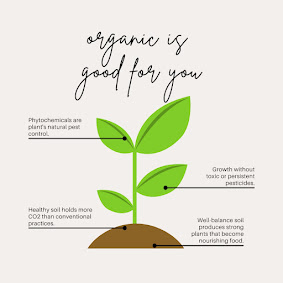Phytochemicals, sometimes called phytonutrients, are naturally occurring substances that can be found in foods made from plants. These compounds have been shown to have numerous health benefits, ranging from reducing the risk of chronic diseases to improving cognitive function. By incorporating more plant-based foods into your diet, you can ensure that you are getting a diverse range of phytochemicals to support optimal health and wellness.
Phytochemicals have been shown to have a significant impact on reducing the risk of chronic diseases such as cancer, heart disease, and diabetes. One example of a phytochemical with potent cancer-fighting properties is sulforaphane, which is found in cruciferous vegetables such as broccoli and kale. Sulforaphane has been shown to have anti-cancer properties by helping to eliminate carcinogens from the body and by inhibiting the growth of cancer cells.
Another class of phytochemicals, flavonoids, has been shown to have a protective effect against heart disease. Flavonoids are found in a range of plant-based foods, including tea, berries, and dark chocolate. These compounds have been shown to improve blood flow and reduce inflammation, both of which are important for maintaining heart health.
Phytochemicals may also have a positive impact on cognitive function. For example, resveratrol, a phytochemical found in grapes and red wine, has been shown to improve memory and reduce cognitive decline in aging populations. This is due in part to the anti-inflammatory and antioxidant properties of resveratrol, which can help protect against cellular damage in the brain.
In addition to reducing the risk of chronic diseases and improving cognitive function, phytochemicals may also have other health benefits. For example, some phytochemicals have been shown to have anti-inflammatory properties, which can help reduce the risk of inflammatory diseases such as arthritis. Others have been shown to have antimicrobial properties, which can help protect against infections.
One of the challenges of incorporating more phytochemicals into your diet is ensuring that you are getting a diverse range of these compounds. Different plant-based foods contain different phytochemicals, so it is important to eat a variety of fruits, vegetables, whole grains, and legumes to ensure that you are getting a diverse range of these compounds.
One way to ensure that you are getting a diverse range of phytochemicals is to eat a rainbow of colors. Fruits and vegetables come in a range of colors, each of which is associated with a different set of phytochemicals. For example, red fruits and vegetables such as tomatoes and watermelon contain lycopene, while orange and yellow fruits and vegetables such as carrots and sweet potatoes contain beta-carotene. By eating a range of colors, you can ensure that you are getting a diverse range of phytochemicals.
Another way to ensure that you are getting a diverse range of phytochemicals is to eat a variety of plant-based foods. Fruits, vegetables, whole grains, legumes, nuts, and seeds can all fall under this category. Herbs and spices are also good sources of phytochemicals, so adding these to your meals can help boost your intake of these compounds.
While phytochemicals are an important component of a healthy diet, it is important to remember that they are not a cure-all for chronic diseases. A healthy diet should also include adequate amounts of protein, healthy fats, and other essential nutrients. Additionally, a healthy lifestyle that includes regular physical activity and stress reduction can also help improve overall health and wellness.
In conclusion, phytochemicals are a powerful tool for improving overall health and wellness. By incorporating more plant-based foods into your diet, you can ensure that you are getting a diverse range of these compounds to support optimal health. While phy

Comments
Post a Comment